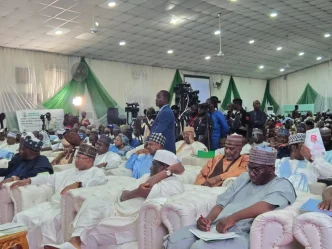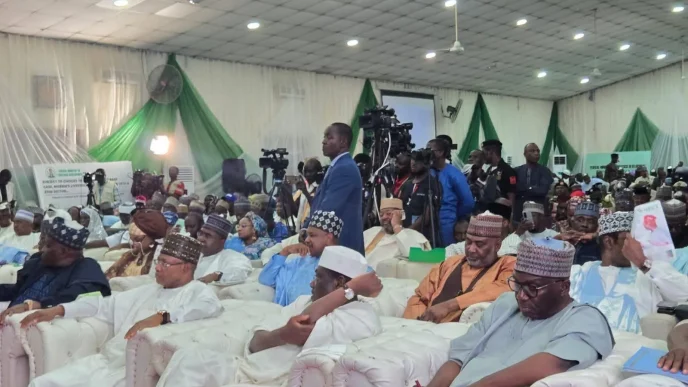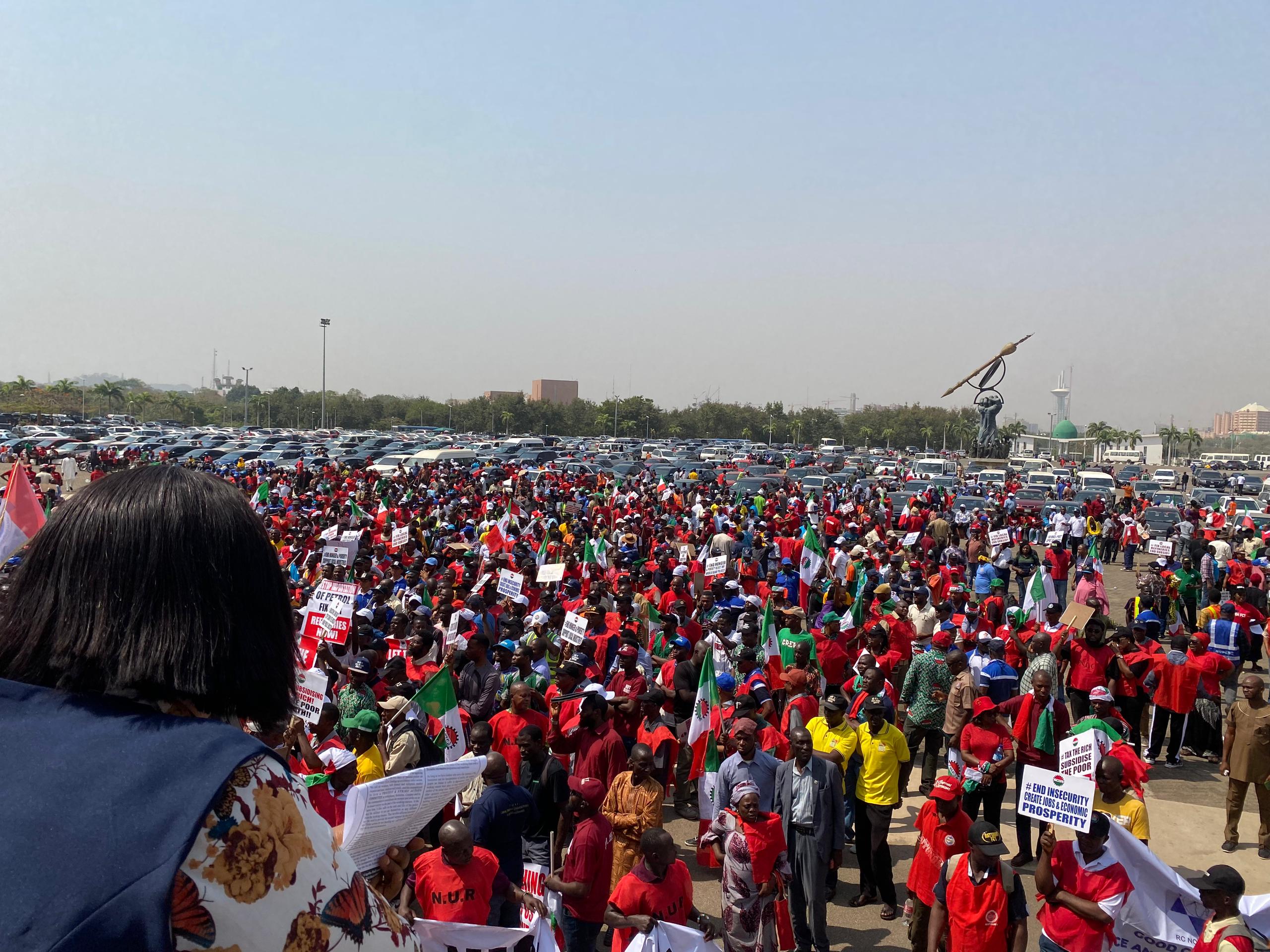BY ABBAS HARUNA IDRIS
Once upon a digital time, specifically around 2010—a small, efficient mobile social networking app called 2go quietly revolutionised communication in Africa. Developed by two University of Witwatersrand students in South Africa, 2go took off in Nigeria like wildfire. By 2013, it had over 10 million active users, boasting a sleek chat interface that worked perfectly on low-end feature phones. It was African-built, African-centred, and African-used.
Yet in 2025, ask any young Nigerian under 18 what 2go is, and they’ll shrug. Its story is not unique. Across the continent, platforms like Mxit, Ayoba, and Eskimi emerged, filled a niche, won users, then died—not from irrelevance, but from a toxic cocktail of global neglect, internalised inferiority, media erasure, and systemic exclusion.
This isn’t just a case of weak business models or bad marketing. This is a case of digital colonialism where African innovation is crushed, discredited, or absorbed by global powers. And just like traditional colonialism, the exploitation is systematic, and the silencing deliberate.
Advertisement
Why did 2go never make global headlines despite reaching tens of millions of users across Nigeria, South Africa, Kenya, and Ghana? The short answer: it was born African.
In global tech perception, African origin equals local irrelevance. This is the “origin penalty”—a concept where the geographical source of innovation defines its global potential. If WhatsApp had been developed in Johannesburg or Lagos , it would have been considered “regional.” Because it was born in Silicon Valley, it became global gospel.
Platforms like 2go are automatically denied the benefit of the doubt. They’re not invited to global tech conferences. They’re not profiled in Forbes or Wired. And certainly, they’re not courted by Silicon Valley venture capital. It’s not what they did—it’s where they’re from.
Advertisement
This is a digital version of the global racial hierarchy. You can innovate as long as your passport isn’t African. Once it is, the world closes its ears.
American Foreign Policy, Soft Power Sabotage and Media
We must understand that American foreign policy is not just about military bases or embassies. It extends deep into the architecture of the global internet. Tech is a tool of US soft power—and African platforms are direct threats to that dominance.
Through certain organisations, American policy indirectly promotes the dominance of US-based platforms—Facebook, Twitter, Instagram, TikTok—by providing infrastructure, lobbying foreign governments, and shaping digital education.
Advertisement
Facebook’s Free Basics, launched in African countries under the guise of “connecting the unconnected,” locked millions into a curated version of the internet—one where Facebook was the internet.
This is soft colonisation: offer help, then dominate the architecture. Platforms like 2go were never even considered for such “partnerships.” They were outside the imperial pipeline. That’s why they were allowed to fail.
Innovation needs visibility. In the global tech ecosystem, narrative is as important as code. Platforms like Instagram became giants not just by building great products, but by being written about, celebrated, and analysed.
But African platforms? They don’t even get a byline. CNN never profiled 2go. Bloomberg never analysed Mxit’s rise and fall. Business Insider and CNBC never reported on Ayoba’s ecosystem. Yet these platforms had millions of African users. The message is clear: African innovation isn’t real until it’s validated by white-owned media.
Advertisement
This is how global perception is curated. Tech excellence is reported only when it emerges from white geographies. Everything else is rendered invisible.
Furthermore, there are numerous theoretical foundations: a system built to block us. Let’s now ground this in theory.
Advertisement
Dependency Theory (Walter Rodney, Samir Amin): This theory explains how the Global South is locked into a cycle of dependence—exporting raw value and importing finished products. African users provide raw data and cultural capital, but Western platforms monetise and repurpose it.
Technological imperialism (Hebert Schiller): Schiller argued that media and tech are not neutral—they are vehicles of control. In Africa, apps like Facebook shape culture, elections, and values. Platforms like 2go could’ve offered counter-hegemony—but they were marginalised.
Advertisement
Digital colonialism (Nick Couldry): Modern colonialism doesn’t need armies. It just needs data pipelines. Africans generate billions in digital value daily—but the servers, profits, and rules are all American or Chinese. 2go was a form of rebellion. That’s why it was ignored.
Nonetheless, even when African platforms exist, many African users run away from them. Why? Because we’ve been conditioned to see “local” as low-class. We download Instagram not because it serves us better but because it comes from California. We ignore Ayoba not because it lacks features—but because it comes from Africa.
Advertisement
This is Frantz Fanon’s colonised mind in action: “The oppressed will always believe the oppressor if the oppressor validates them.” Until we redefine what is prestigious, our platforms will always die not from Western attack, but from domestic neglect.
Startups in Africa rarely get more than $1–2 million in funding, and when they do, the investors are almost always foreign. Silicon Valley VCs prefer to fund foreign-run startups for African markets, rather than African-run startups for African realities.
When 2go needed scale, where were the funders? Where were the grants, the loans from IFC, the angel investors from Dubai or London? They were busy funding apps that copy Uber in Lagos, not apps that empower Africa to tell its own digital stories. The system is built to fund dependency, not sovereignty.
Let’s understand how African platforms die — not suddenly, but slowly and structurally: they’re ignored by global media, they don’t attract global investment, they’re seen as irrelevant by local elites, they don’t scale fast enough, and their failure is used as proof that Africans can’t innovate.
This cycle is not accidental. It’s designed to maintain a power structure where African users are always users, never owners. Just like in colonial times, we’re given tools but never factories; we’re shown maps, but never allowed to draw them. Platforms like 2go weren’t perfect — but they were ours, and that’s precisely why the system was allergic to them.
Let’s look at what other countries did differently.
China banned Facebook, Twitter, and YouTube early. It created WeChat, Weibo, and Douyin (TikTok’s twin) instead. Today, those platforms dominate a digital ecosystem of 1.4 billion people — all while China retains control over its data, narratives, and national security.
When TikTok was banned in India, it took just 6 months for “Koo,” “Chingari,” and “ShareChat” to replace it. India also maintains national payment systems like UPI, and tech unicorns are now being funded by Indian VCs, not just US firms.
Russia promotes VK (VKontakte) and Yandex over foreign competitors. They’ve invested in data sovereignty, media self-reliance, and firewalls that prevent foreign platforms from capturing user behavior wholesale.
What’s the lesson for Africa?
No country achieves digital independence by waiting for Silicon Valley to include them. Independence is asserted, not requested.
Many economists will argue: “Let the market decide.” But what if the market itself is colonially rigged? Digital protectionism doesn’t mean isolation. It means creating safe zones for African platforms to grow, including reduced taxes for African apps, data storage requirements within Africa, preferential listing on app stores, mandatory African language options and government incentives for local use.
Just like infant industries needed protection in post-colonial economies, infant platforms need protection in a globalized internet. If we don’t protect our own, we will never catch up.
What 2GO got right and why it was left to die?
Let’s revisit 2go’s actual features: worked on Java phones when most Africans couldn’t afford smartphones, used ultra-low data, perfect for limited connectivity zones, had channels for politics, education, and entertainment — long before Telegram or Clubhouse, and offered in-app currency (GoCredits) — a precursor to monetisation. By every metric, 2go was ahead of its time in adapting to African realities.
So why did it fail?
Because it wasn’t part of the global Silicon Valley ecosystem. Because it didn’t have PR teams in New York. Because it wasn’t white enough to be seen as serious. We lost 2go not because it was flawed — but because the world saw “African” and assumed “inferior.”
If African platforms are to rise again, it won’t just be because of developers. It will be because of creators: influencers on Instagram and TikTok are building enormous audiences — but they’re enriching foreign platforms, African musicians, comedians, and thinkers are getting millions of views — but they’re paid crumbs and memes and humour originating from Nigeria, Kenya, or Ghana are repackaged and monetised by Western social giants.
Imagine if these creators rallied around an African platform — where their work was valued, protected, and monetised transparently. That’s the revolution we need. The creator class must realize: using foreign platforms forever means giving away your labour for free.
Let’s go under the hood. Most African digital platforms — even the ones we celebrate — store their data on Amazon Web Services, Microsoft Azure, or Google Cloud.
This is dangerous for two reasons: data sovereignty is compromised. Our conversations, medical records, and national databases live in servers outside our continent, and data scalability is bottlenecked. African startups can’t compete on cost when their infrastructure is priced in dollars, billed in California. We need pan-African cloud infrastructure — located in Lagos, Nairobi, Kigali, Accra. Until then, our so-called independence is skin-deep.
Why African billionaires must stop buying yachts and start building platforms?
Let’s be honest: the African elite have failed tech. We have billionaires who own private jets, build hotels and buy football clubs in Europe. But how many are investing in African search engines, social platforms, or AI labs?
China’s Jack Ma created Alibaba. India’s Mukesh Ambani launched Jio. America’s Elon Musk builds infrastructure, not just fashion lines. Africa doesn’t lack capital — it lacks patriotic, risk-tolerant capital. Until our billionaires invest in digital futures, their wealth is meaningless. They’ll die with estates, while their people remain digital tenants.
Here are some blueprint to revive African digital sovereignty: create Afro-centric app stores with local prioritization, mandate African data storage for African users, ban exploitative ad models by global firms unless they pay data tax, fund African platform startups via a continental venture fund, build national creator monetization schemes, run public campaigns against digital inferiority complex and celebrate African platforms in mainstream media, daily.
“African platforms just aren’t good enough.” False. 2go was better suited to African needs than Facebook. Ayoba has offline media sharing. Nairaland still beats Reddit in Nigerian relevance.
“We can’t compete globally.” We said the same about fintech and music. Now Nigerian artists are global. So can our platforms — if we fund and protect them.
“Let the market decide.” The market is not neutral. It’s colonised by brand bias, media gatekeeping, and infrastructure inequality. Letting the market decide is letting the West decide.
This is about more than social media. It’s about power. If you don’t control the platforms where you speak, then your voice is leased. If you don’t control the tools where you create, then your creativity is mined. If you don’t control the networks where you connect, then your relationships are vulnerable. Digital sovereignty is the next independence.
Google now has its own African AI lab. Facebook runs election ads for African campaigns. TikTok influences youth voting behaviour. These aren’t tools—they’re Trojan horses. The West doesn’t need to recolonise Africa by force. They’re doing it one app at a time.
To every African building a social media app, a voice app, a local news aggregator—you are a freedom fighter. You are continuing what Nkrumah, Sankara, and Mandela fought for. Not with guns or ballots — but with code. Your job is not just to build — it’s to end our digital dependence.
2go didn’t fail because it was weak. It failed because it was black, local, and unprotected. Its failure was a symptom of deeper colonial forces—economic, psychological, and institutional.
But 2go also showed us what’s possible. It proved that African youth want to connect on African terms. It proved that we can build platforms that matter. The next 2go is waiting. Let’s not kill it with silence this time.
Abbas Haruna Idris is an Afro-digital observer. He writes from Kwarbai, Zaria City. He can be reached at [email protected].
Views expressed by contributors are strictly personal and not of TheCable.









